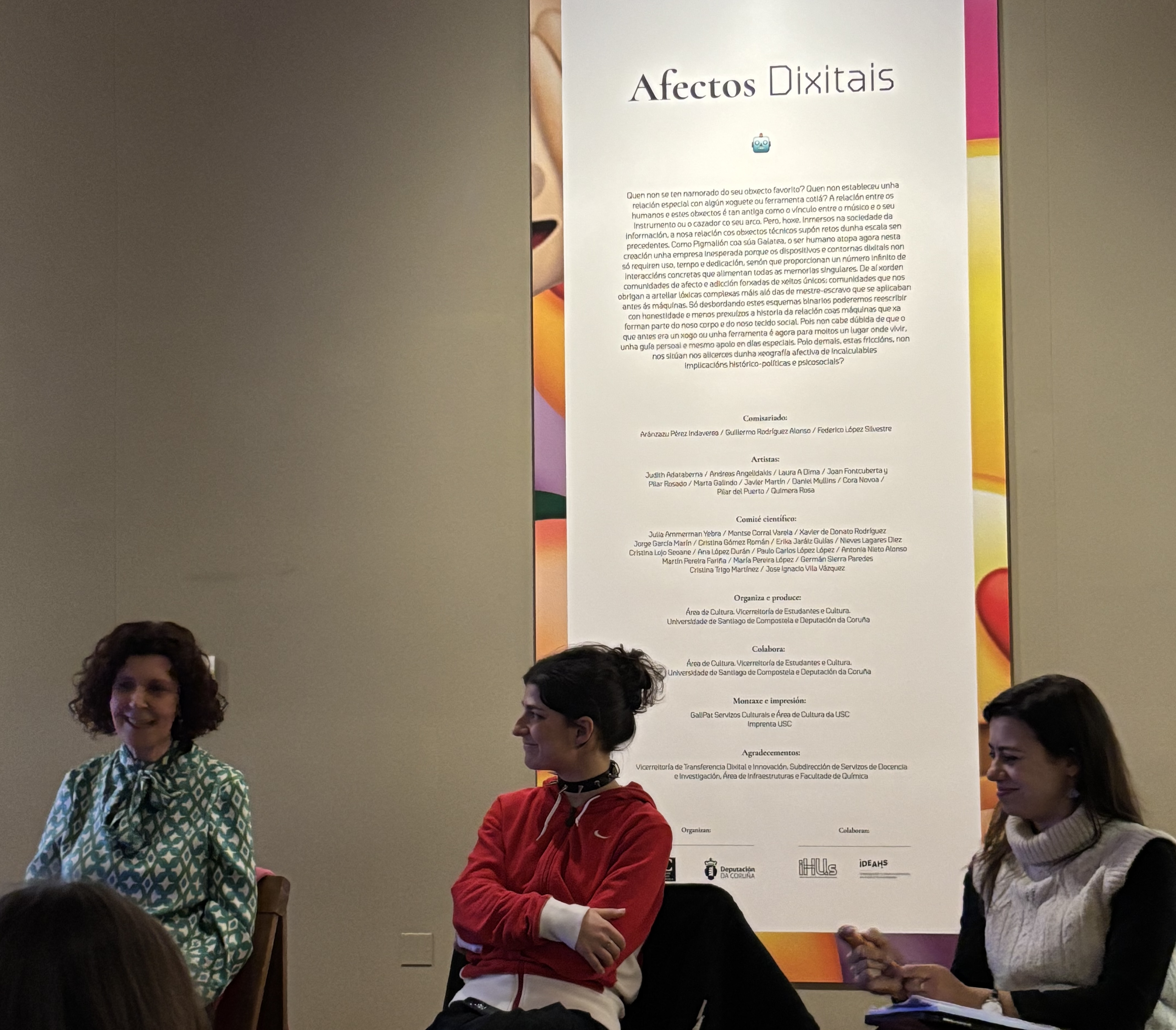Professors Antonia Nieto and Julia Ammerman analyze the impact of AI on personality rights from the perspective of art.

Last Monday, February 17, professors Antonia Nieto Alonso and Julia Ammerman Yebra participated in a Cultural Faísca organized by the Vice-rectorate of Culture of the University of Santiago de Compostela. They were accompanied by the artist Marta Galindo, author of one of the works in the exhibition Afectos Dixitais, curated by Aránzazu Pérez, Guillermo Rodríguez and Federico L. Silvestre. The conference took place in the Salón Artesonado de Fonseca, where the exhibition was also installed since November 2024.
The exhibition of works on display sought to reflect on the power of algorithms and digital gadgets and their impact on our lives from different approaches. In this case, we wanted to highlight the impact of AI on the rights of image, voice, and privacy of individuals.
Thus, under the title “Affections and effects of AI on personality rights”, Professor Nieto Alonso first selected two of the works in the exhibition to relate them to these rights. The first of them, “Consent Pods”, by the artist Laura A Dima, was an interactive work, in which two silicone structures captured data from the people who were near them, and if they were touched with the hand it was understood that the “consent” was given to perceive the data generated by the other person. According to the professor, this work made it possible to recognize emotions through the heartbeat, for example. Such recognition of emotions (happiness, sadness, indignation, surprise, enthusiasm...) is a practice prohibited by the recently approved EU Regulation on AI. On the other hand, the work “Happiness Mirror”, by artist Pilar del Puerto, showed phrases extracted from several conversations with Alexa, Amazon's virtual voice assistant. Professor Nieto associated the work with the right to voice, for whose use by third parties will have to seek consent from the owner, as is the case with the right to image.
On these issues brought up by the artist, Professor Julia Ammerman Yebra gave some legal details. Thus, she explained the protection granted by our legal system to the memory of deceased persons, or the digital replicas of the voice and image of a person made without their consent by means of AI systems.
Finally, a discussion was opened with the audience about the possibility of AIs themselves being “authors” of works, or about training “artistic” AI systems with features of our personality, such as our voices and images. What became clear was that the analysis of all these challenges that AI is posing to jurists can be illustrated and enriched by artists and works such as those exhibited in the Afectos Dixitais exhibition.